Get a hobby
aking the time to pursue hobbies can have all sorts of positive effects, such as improving your physical and mental health or adding new dimensions to your career. They can offer fun, much-needed breaks from your daily work, and a chance to be successful in another part of life.
Here’s what these W. P. Carey faculty, staff, and alumni do.
Samuelson: Professor and triathlete
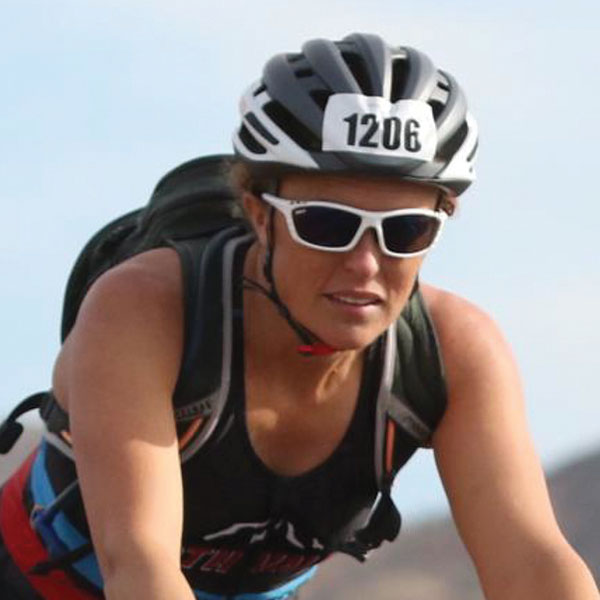
Melissa Samuelson’s hobby has taught her at least three things: Take one step at a time, prepare as much as you can in advance, and be ready to pivot to reach your goals.
Samuelson, a clinical associate professor of accountancy, started the sports side of her life as a cross-country runner. She took up cycling and swimming as ways to cross-train, which led to becoming a triathlete. She completed her first full Ironman race in November, finishing in 13 hours, 53 minutes.
Teaching ethics courses to undergraduates and competing in triathlons overlap in some ways, Samuelson says. When she has a huge project or a course to plan, she remembers that one step at a time is sometimes the best approach to a challenge. When she talks to students about studying and preparation, she thinks about how she manages her time to create a balance between work and training for a race. When she talks to them about professional goals, she tells them about planning for alternative ways to achieve them.
“Sometimes you’re going to have to pivot, make adjustments,” she says. “You’re going to have to make sure you’re still moving in the same direction, but you might need to do something in a way that you didn’t expect at first.”
Photo by FinisherPix®
Cross: Alumnus, insurer, and powerlifter
Bill Cross has been lifting weights ever since he hurt himself water skiing and vowed to start taking better care of himself.
Fifty years later, the 76-year-old partner in a Phoenix insurance agency lifted 242 pounds and set a world record in the bench press for his age and weight class at the 100% Raw Powerlifting Federation’s competition in October in Virginia Beach, Virginia. He also lifted 45 pounds in the strict curl — a bicep curl performed against a wall — and won his age and weight class.
Cross started competitive weightlifting when he was 69, working out up to six times a week with up to six fellow weightlifters.
Before that, Cross worked out three times a week while working for Cash, Sullivan & Cross, an agency in which his father was a partner and which by the mid-1980s had grown to 110 employees in five offices.
Cross and two partners bought the Phoenix office. Today, Cash, Sullivan & Cross have six employees and are focused on serving the construction industry.
He makes the case that his workouts have paid off with more years of a longer, healthier life. “I always enjoyed the thought of being healthy,” says Cross, who graduated from ASU in 1967 with a bachelor’s degree in insurance. “I have plenty of energy, and I still work at the agency a couple of hours a day on average.”
Knowing that his hobby keeps him in shape helps him stay motivated, he says, along with people saying, “It can’t be,” when he tells them his age.
Grebitus: Professor and yoga instructor
After seeing an increased number of students dealing with anxiety and stress, associate professor Carola Grebitus decided to use her yoga hobby as a way to help them. Through yoga, she was able to show her students and peers the benefits of using the practice to relax and manage emotions. In this video, Carola leads an easy chair yoga session that can be done by anyone to help relax and manage stress during the workday.
Read more about Grebitus’ yoga story here: news.wpcarey.asu.edu/have-seat
Barto: Alumna, future lawyer, and dancer
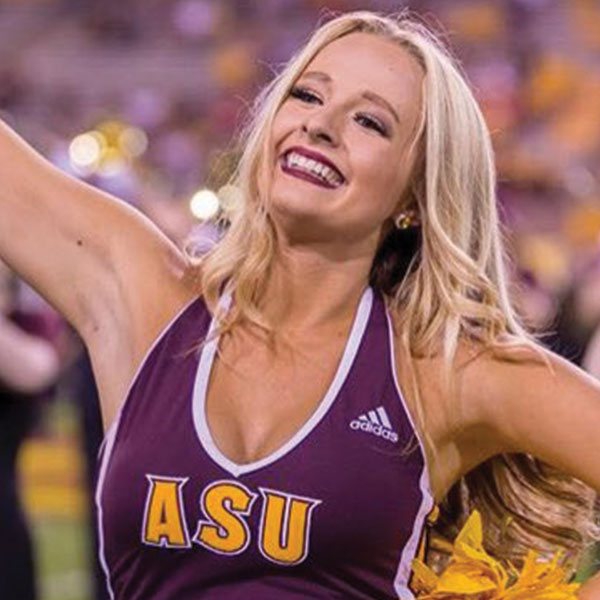
Amber Barto has been dancing since she was 3, developing her talent in styles ranging from jazz and tap to ballet and contemporary. “I just kind of fell in love with the performance aspect of it,” she says. “I loved being on a stage. I loved connecting with an audience. I loved just telling a story.”
Just as important, her hobby taught her about discipline, staying confident, and taking constructive criticism. When she began entering pageants and scholarship competitions, she tapped everything she learned from dancing and over the years won Miss Arizona’s Outstanding Teen and Miss Scottsdale titles. In 2021, she was named Miss Arizona.
Barto graduated from ASU in 2020 with degrees in business law and political science, and in 2021 with a master’s degree in legal studies. Her position as Miss Arizona is like a full-time job, filled with Zoom meetings and interviews, visits to sponsors, appearances and dance performances at events around the state, and creating content for social media. She represented Arizona in December’s Miss America event, which was won by another ASU student, Emma Broyles (Miss Alaska).
Participating in the Miss Arizona and Miss America competitions helped Barto pay for school and has given her professional experience in many ways, she says. She speaks about the importance of volunteerism in her travels around the state. Her position as Miss Arizona also gives her a social outlet and a wide network and support system and has brought her internship and job offers.
Her role as Miss Arizona and her professional goals also combined when she toured the U.S.–Mexico border. It allowed her to see the issues first-hand and made her immigration law class more real, Barto explains. She plans to attend law school in the fall to specialize in international law and continue in public service, at which point she expects dancing to be both a break from work and a benefit.
“Dedicating an hour to doing something you love is not just going to be fun for that hour. It’s going to help you in everything else you’re trying to do in your life,” she says.


We asked alumni on LinkedIn about their hobbies (or lack thereof). Here’s how 104 of them answered:
- 17% don’t have time for one.
- 62% have a few hobbies.
- 5% recently revived an old hobby.
- 16% have one serious hobby.
Certo: Professor and pizza maker
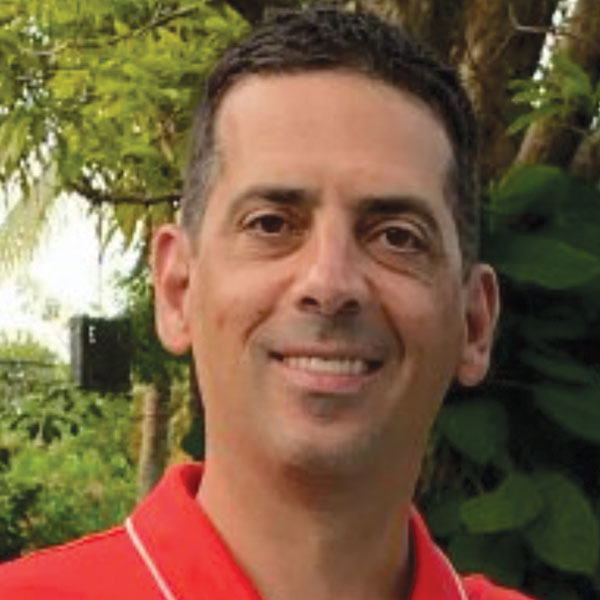
From learning to make dough to experimenting with new combinations of toppings, making pizzas is a total break from Trevis Certo’s job as a management and entrepreneurship professor and the Jerry and Mary Anne Chapman Professor in Business.
“We all need breaks, especially from how we’re living right now. We just need to be able to turn things off,” he says. “When you’re a professor — especially when I was an administrator in the dean’s office — it seems there’s always something that pops up and there’s never a time to shut it down. This is as close to shutting down as I can get.”
Certo, his wife, and their three teens have long enjoyed pizza once a week. But when the pandemic started and the quality of delivery pies took a dive, he persuaded his wife that a pizza oven would pay for itself, bought one, and started making pizzas.
His most popular toppings are black olives, green peppers, and onion for veggie pizzas. Butter and cinnamon sugar, Certo adds, make delicious dessert pizzas.
Webster: HR specialist and volleyballer
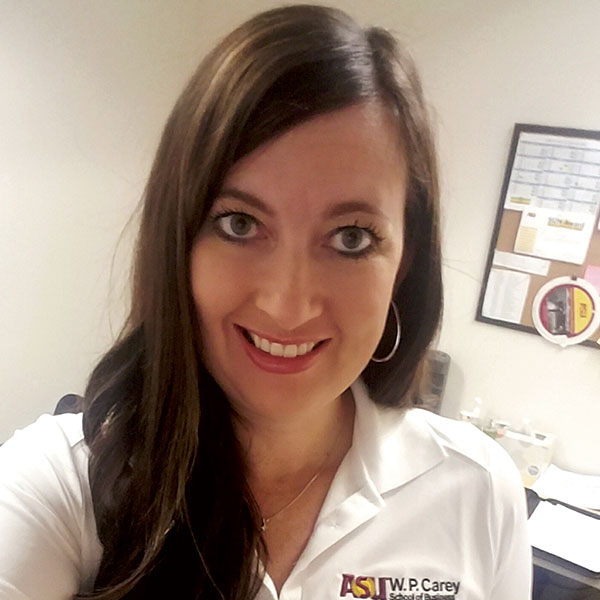
Playing competitive volleyball forces Allison Webster (BS Communication ’10) to take breaks from her responsibilities as an academic personnel specialist senior at ASU.
“Especially as you become more competent in your job and have more responsibilities, you tend to stay at work longer and think about work more. It’s hard to disconnect sometimes,” Webster says. “A hobby makes you take a break and recharge so you’re ready for work the next day. You’ve had time to focus on yourself and mental well-being, and you come in less burned out when you have something going on other than work.”
Webster has played volleyball since middle school, first as part of her school team, then joining club teams to play year-round and travel to other states. Beginning as a setter and moving to outside hitter positions, she became a utility player who could perform anywhere on the court. When she attended ASU, she started playing sand volleyball to use all of the skills she had acquired for a new challenge.
She’s been somewhat of a utility player in her 11 years working in human resources at W. P. Carey, too. Webster started as a management intern, worked on student and staff HR actions, and now focuses on personnel actions.
Webster looks forward to getting her toes back in the sand when it feels comfortable to do so in a group.
(BS Communication ’10)
How important are creative outlets?
“Beyond utilitarian goals, people are motivated by the sense of meaning and happiness that their creative activities provide them,” says Clinical Assistant Professor of Marketing Nancy Gray.
Watch her TEDxASU presentation, “Happiness and Joy for the Material Girl and Boy,” in which Gray explains how designing — the act of making something, of bringing something new into the world through a creative act — provides the longest-lasting and most sustainable happiness.
When Gray isn’t working on teaching and research-related fare, she designs 3D and 2D stuff — from gadgets to logos — paints in oils, plays the piano, learns the cello, and, for inspiration, backpacks and bikepacks into wild and remote places.
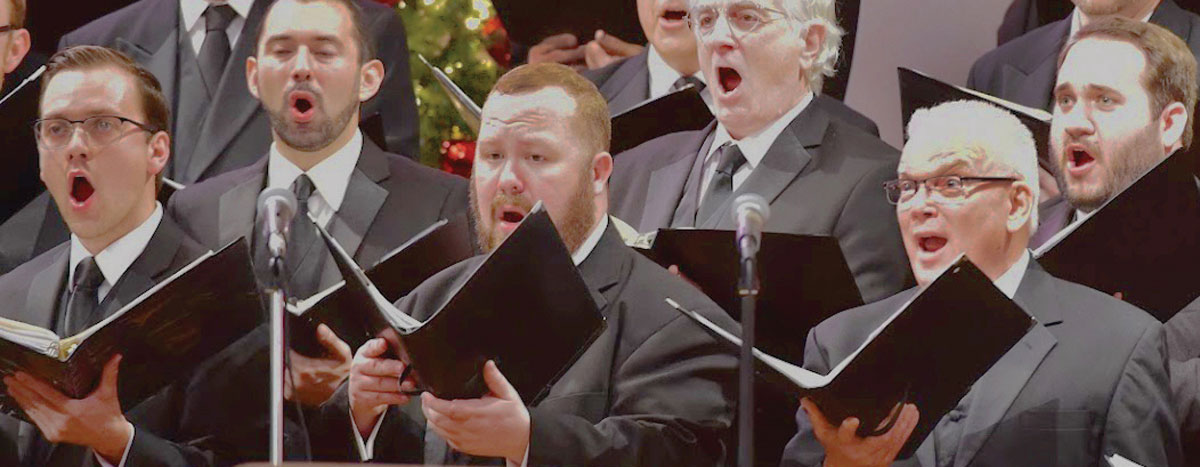
Bickerstaff: Alumnus, accountant, and singer
After a day of working with numbers and business presentations as a senior accountant at homebuilder Taylor Morrison, Dave Bickerstaff (BS Accountancy ’02) heads to rehearsals and singing with the Orpheus Male Chorus of Phoenix.
Crunching numbers and making music aren’t as oppositional as most people would think. “It’s all a language,” Bickerstaff explains. “You have to figure out the math or science problem in your mind and be able to express that in a way that makes sense to people. It’s the same thing with music — you’re looking at a piece of music, and its lines and black notes on a page, and you have to be able to process them, understand what the music is trying to tell you, and reformulate how you’re going to express it.”
Bickerstaff grew up in a musical family, singing in church and his high school choir. He enjoys performing and even majored in music education at Western Illinois University and Eastern Arizona College until he decided he would do better with a business degree.
Bickerstaff’s accounting career started at a regional equipment dealership and a fuel distributor before his longest-tenured positions at the U.S. Department of Defense and marine terminal management company Ports America and his current gig at the homebuilder.
While at W. P. Carey, he sang with the ASU Men’s Chorus under the direction of Brook Carter Larson (DMA ’00), but it took Bickerstaff nearly 10 years to get back into singing after that. When Bickerstaff discovered his friend had become artistic director of the Orpheus chorus, Larson quickly recruited him to the group. The rehearsals are fun, and Bickerstaff’s wife says he comes home from them upbeat and relaxed.
“Find something you’re passionate about and make it a priority,” he advises. “It may lead into a second career, or it may just be a fun break from the rigors of your daily work.”
(BS Marketing ’85)
McKelvy: Alumna, business owner, and dressage rider
Wendy McKelvy (BS Marketing ’85) is turning her marketing and architecture degrees and her love of horses into a business — designing and managing barns that cater to participants in the sport of dressage.
She was riding dressage in Colorado when the barn she used went into foreclosure. She and her trainers built another one and grew it into a successful boarding and training facility. Seven years later, when McKelvy moved to Massachusetts, she brought her horses but couldn’t find anything similar. She went back to the drawing board, invited her Colorado trainers to join her, and in 2020 opened Iron Horse Dressage outside Boston.
“I was lucky that I could design and build it,” McKelvy says. “I have my marketing degree, and to put all this together and build it into a business, I had to do a business plan, I had to go to the bank, and get the financing.”
Her business boards and trains 33 horses and already has a waiting list. She’s built a community of clients who are accomplished in their careers and, like her, have a passion for riding.
“Dressage is a goal-oriented sport because we move up the levels,” McKelvy explains. “These horses are like the figure skaters of the horse world — it takes years for them to develop the muscles to do the movements they do. It also takes years for the rider to be able to make the horse do these things without it looking like you’re doing anything.”
Balancing her work and hobby is easy, she says, because she spends so much time at the barn and gets to ride every day. “It’s fun to work at a place where you also play,” McKelvy says.